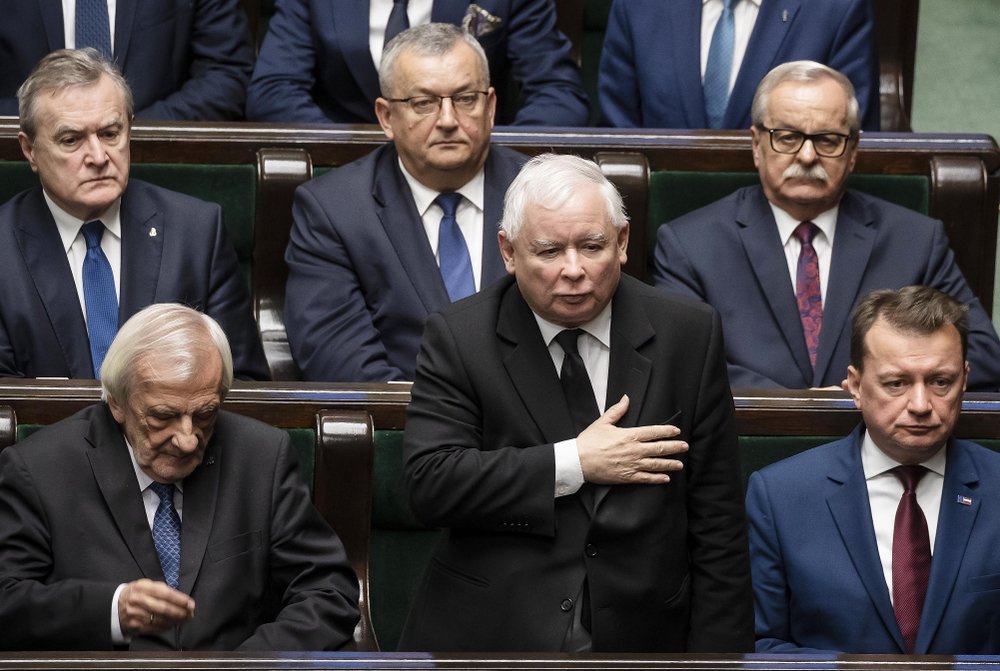
The leader of Poland's ruling right-wing Law and Justice party, Jaroslaw Kaczynski, center, swears in as a member of the parliament during a gala inauguration of a new four-year term of the national parliament in Warsaw, Poland, Tuesday, Nov. 12, 2019. (Photo: AP)
Poland’s president laid out his vision for a tolerant nation rooted in Christian traditions and appealed Tuesday for an end to the political conflict as he inaugurated a new four-year term in the country’s parliament.
Andrzej Duda paid homage to Poland’s tradition of being a land of tolerance and a place where many ethnic and religious groups lived for centuries in relative harmony. He also paid tribute to the Roman Catholic and strong family traditions that he said have been so crucial to preserving the social fabric over a difficult history.
He noted that while the national identity is rooted in Catholicism, Poland remains home to those of many religions, including Eastern Orthodox, Protestants, Muslims and Jews.
“To me, everyone who has Poland in his heart is a Pole,” Duda said, in what appeared to be a rebuke against a strand of nationalism that excludes those who are not Catholic, represented by a new far-right party that just entered parliament.
Duda also appealed to the lawmakers in the 460-seat lower house, or Sejm, to put an end to the tensions and divisions that have for many years defined political life.
“They say sometimes a fish rots from its head. The head is here,” said Duda, who has declared he will seek re-election in the nationwide presidential vote in the spring of 2020, for a second five-year term.
Speaker Senior Antoni Macierewicz opened the gala session, knocking with an ornamented wooden staff on the floor three times. Those assembled then stood to sing the national anthem. The lawmakers took their oath of office one by one.
Prime Minister Mateusz Morawiecki submitted the resignation of his Cabinet to pave the way for the new government that is to be composed of mainly the same ministers. It still needs approval from Duda and the parliament.
The parliamentary election on Oct. 13 gave a second term to the populist, conservative Law and Justice party, which won nearly 44% of the votes, the highest percentage of any party since Poland returned to democracy 30 years ago.
But the election also created some complications for the party and its 70-year-old leader, Jaroslaw Kaczynski, as it continues its plans to reshape the nation.
For one, the far-right party, Confederation, got almost 7% of the vote, winning 11 seats in the assembly.
Law and Justice had sought to prevent any party arising in parliament to its right. That strategy had led Kaczynski and other leaders to try to appeal to the far right, and they even marched with them on Independence Day in 2018.
In another change, a left-wing alliance won 49 seats, after a hiatus of four years, after getting nearly 13% of the vote.
While the ruling party preserved its slim majority in the lower house, it lost control of the 100-member Senate, where the opposition has 51 seats and there is one nonaligned senator. The Senate is less powerful than the Sejm but appoints the heads of some key state bodies and can slow down legislation.
Opposition Senator Tomasz Grodzki was chosen as the chamber’s speaker in a 51-48 vote with one abstention, during its first session Tuesday.
Grodzki said it was a victory for democracy.


